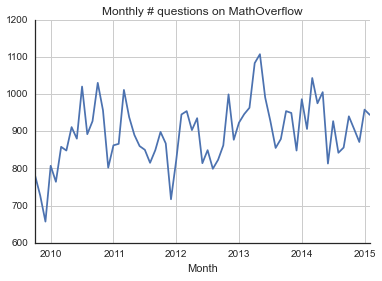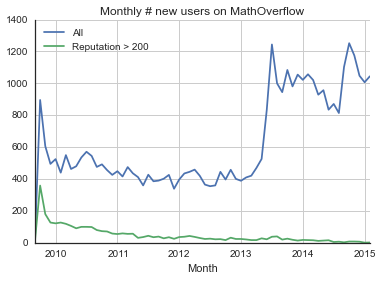I am playing with the Stack Exchange Data Explorer to compare some MathOverflow stats to arXiv stats. I was surprised to see, that in the last 4 years there was almost constant activity (measured by the number of questions). There is constant influx of new users (with a sharp step after joining the Stack Exchange network), but not many get a non-trivial reputation.


Is this data complete? (I am not familiar with the migration process from SE1 to SE2, so maybe lack of growth is only some kind of artifact.)
If the data is complete, is it a sign on stagnation (i.e. we should worry, as it losses its impact OR it could reach a wider pool of people) or just saturation?
Remarks
- For the number of answers it looks even more worrying (it went down from 3.5 to 1.0 per question).
- There is a delay between creating an account and gathering 200 reputation. So, maybe some more advanced statistics (like the typical "lifespan" of a user) would help.
Related: User retention rates on MathOverflow
Relevant queries
